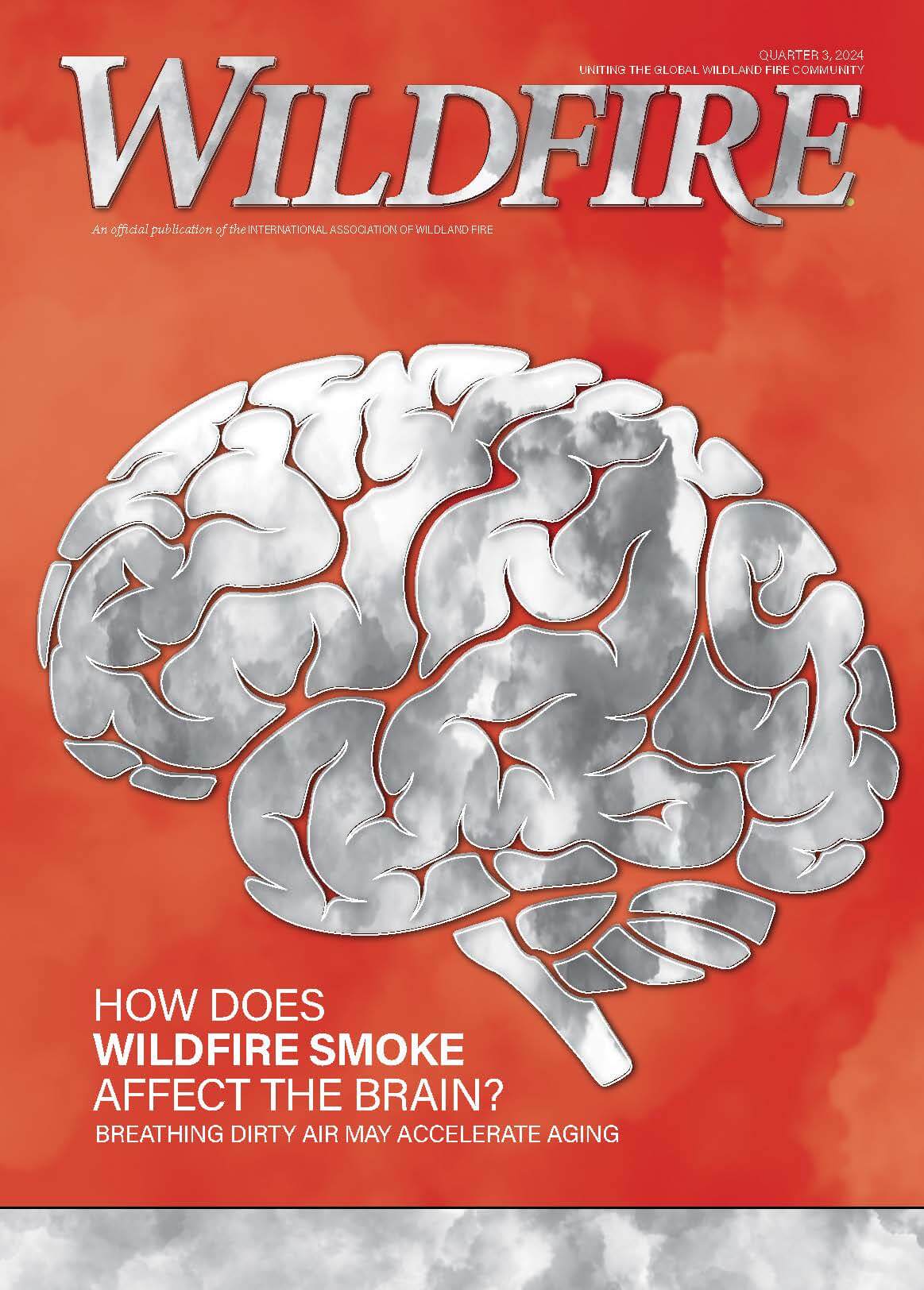Dr. Erin Belval
2024 Early Career Award in Fire ScienceDr. Erin Belval, Research Forester, Forest Service Rocky Mountain Research Station
Since joining the Forest Service as a Research Forester in 2021, Erin has demonstrated outstanding capability and exceptional promise for significant future achievement. Her work builds on projects that she engaged with while earning her PhD at CSU, with new energy and attention to critical research needed to support pressing data compilation, complex analytics, and strategic science delivery related to key fire management issues.
Although still an early career scientist, she is establishing herself as the “go to” for rigorous science applied to firefighting personal usage and safety.
She had led studies related to:
The wildland fire dispatching system structure and performance. She has worked to improve the data used to compare fires and the visual delivery of the metrics to decision makers to improve interpretation. Her research focuses on barriers to change and opportunities for the future, with regards to risk-informed decision making at the regional and national level in wildland fire. She has worked directly with the U.S. National Multi-Agency Coordination Center to improve intelligence processes that directly impact dispatch allocation.
Recently, the US Forest Service conducted an "Interagency Hotshot Crew Programmatic Review”. It provided a comprehensive review of the program and how it has changed since it started 80 years ago. The review contributes to ongoing firefighter workforce improvement efforts. The substantial research and recommendations in the report helped inform President Biden’s 2024 budget and legislative proposals to implement a permanent pay increase that federal firefighters need and deserve. Of the 31-member interagency review team, she was the only early career researcher.
She led research designed to quantify the impact of pay on wildland firefighter retention. She assembled a unique dataset on Interagency Hotshot Crews from 2012-2018 to analyze the factors that affect firefighter retention. The resulting data linked firefighter presence in the system with competing wage data, days on assignment, cumulative experience on fires, and their year-to-year retention. The researchers found that a) higher workloads, which is a proxy for higher earnings, and b) cumulative experience over the course of an employee's career both have a significant positive impact on retention. Such information can be used to inform future efforts to ensure an adequate firefighting workforce.
She was invited to participate in forecasting wildland fire suppression costs while explicitly accounting for increased fire activity due to climate change. These reports were initiated at the request of the White House Office of Management and Budget. She participated as a subject matter expert on the climate data and the modeling sub-teams and contributed material for the final report.
As the COVID-19 pandemic emerged, she engaged in research examining the effects of COVID-19 on firefighting operations. She and cooperators modeled scenarios to examine how COVID-19 might spread through and between fire camps. Results were provided to national and regional managers to inform development of COVID mitigation strategies. This research led to this individual overseeing the technical development of the practical “COVID-19 Incident Risk Assessment Tool” and associated dashboard.
In addition to her groundbreaking work related to firefighter personnel, she supported the Wildfire Commission report and contributes to the Rocky Mountain Research Station Wildfire Risk Management Science (WRMS) team’s work on fuel break effectiveness. This work was provided to the Angeles National Forest to assess the effectiveness of their proposed fuelbreak strategy.
She has established and maintains strong relationships with several university partners including participation in graduate student committees and other service and training activities.
